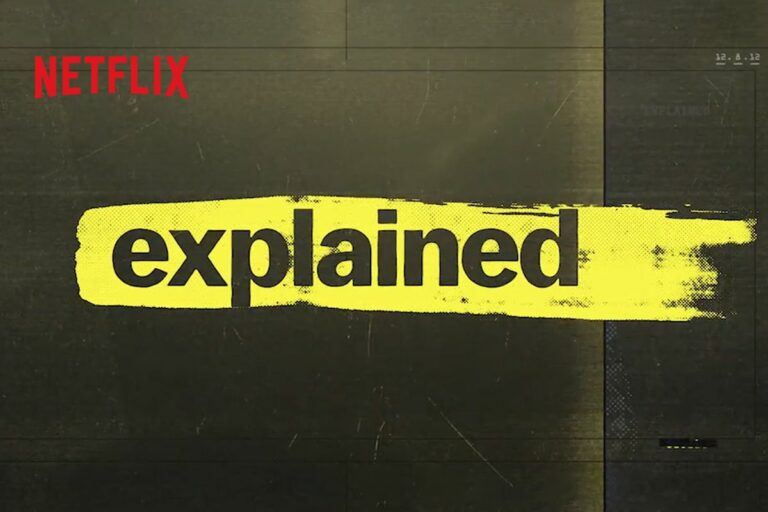“Explained” is a great concept for a series, it’s short enough to be watched during a lunch break, it makes use of impressive graphics and visual effects and it’s usually very well researched. However, the collaboration between Netflix and Vox didn’t live up to the expectations when the show attempted to explain cryptocurrencies.
If we take a look at the IMDB rating, then we notice that the episode called “Cryptocurrency” (which ends up mostly talking about Bitcoin anyway) has the lowest rating of all this season’s releases: 5.6/10 (while the second weakest, “Why Diets Fail”, is rated 6.7/10!). If we do a quick search on Twitter to see the opinions of the community, then we’ll discover lots of outraged members of the crypto community who try to explain why “Explained” has joined the bunch of media giants who spread FUD. Of all the comments, perhaps the most sound and influential belongs to cypherpunk Jameson Lopp:
Factual errors made by @netflix's “Explained” episode on cryptocurrency:
* Most bitcoin is spent on illegal services.
* Byzantine General's Problem is about being able to transact privately.
* Satoshi invented the blockchain.
* All cryptocurrencies use blockchains.— Jameson Lopp (@lopp) June 10, 2018
The fundamental issue is that this episode might very well be the first explanation of cryptocurrencies that some people get.
Aiming to explain cryptocurrencies in 15 minutes is an ambitious goal, unfortunately there are too many details that need to be compressed. That’s no excuse to depict Bitcoin solely as a mean for criminals to acquire illegal services and for frat boys to speculate and get rich.
In the crypto jargon, this is called FUD – Fear, Uncertainty, and Doubt. Mainstream media has been doing it for as long as Bitcoin has existed. If anything, I’d call this edition of “Explained” sensationalistic and purposely-controversial. Because the producers have clearly had access to a generous budget and even interviewed savvy people like Dogecoin creator Jackson Palmer.
But instead of serving the informative purpose that it pretends to aim towards, the project becomes stereotypical and much like any debate we’ve heard from misinformed news anchors. While some good intentions can be found in the presentation, they quickly get washed away with images of Silk Road drug deals and lucky teenagers who became millionaires and live the much-resented Lambo lifestyle. I’m lucky that mom watched “Banking on Bitcoin” first, otherwise I’d probably be in a lot of trouble for my job and hobby.
The other big issue: no mention of scalability projects.
By the end of the episode, we get the popular comparison between the amount of transactions can process, as opposed to the limitations of the Bitcoin blockchain. The producers don’t even bother to mention that there are thousands of altcoins which offer improvements for scalability (bigger blocks, second layer solutions, or a switch to a more centralized governance in order to reduce consumption of resources).
And since the main topic, in spite of the title, is definitely Bitcoin, they don’t even talk about the efforts that the community has made in order to implement SegWit and the Lightning Network. Certainly, these details would have extended the length of the episode by another 5 to 10 minutes, but the average Joe who probably won’t do further research on the topic has to understand that the technology has developed since 2009.
No mention of mainstream adoption results
The episode portrays Bitcoins primary function in commerce as being the illegal dark net markets such as the infamous and defunct Silk Road. Lots of shops around the world accept BTC payments via payment processors which actually convert cryptocurrencies to fiat in an instant and with minimal fees. Ever heard of BitPay, GoCoin, Aliant, Coincheck or Coingate?
Also, thanks to the implementation of the second layer scalability solution the Lightning Network, Bitcoin is expected to become the internet’s native currency. It will help people all across the world transact value with just a few clicks and make purchases with lower fees than their diamond credit cards. The operations are instant and irreversible, and that’s one of the biggest selling points for shops – why wait for a bank which only works 5 days a week from 9 AM to 5 PM when an accessible service can help you get your money within minutes?
Not only that there are merchants who gladly allow you to spend your cryptos, but esteemed financial companies like CME and Cboe already offer futures while others have announced their intentions to join in.
The main idea is that Bitcoin has outgrown its Silk Road currency phase. The transactions can be traced on the open ledger, and inventions like Monero and ZCash serve the privacy purpose much more efficiently.









